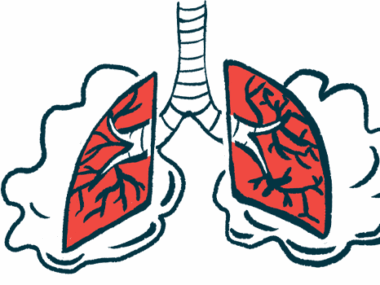Drug use raises risk of angiodema breathing complications: Study
Tobacco, cannabis among substances that may affect airways
Written by |

People with non-hereditary angioedema living with a substance use disorder (SUD) have a significantly elevated risk of breathing-related hospitalizations and complications, according to a U.S. nationwide study involving more than 140,000 people.
The increased risk applied to all subtypes of SUD, including excessive use of alcohol, tobacco, cannabis, cocaine, and opioids.
“This study highlights clinically relevant predictors of airway compromise,” the authors wrote. “Physicians should be aware of certain risk factors that may require a higher acuity level of care, including history of tobacco and cannabis use.”
The study, “Substance Use Disorder as Risk Factor for Intubation in Angioedema: A Nationwide Cohort Study,” was published in The Laryngoscope.
Angioedema is marked by episodes of rapid swelling caused by fluid build-up in the deeper layers of the skin or mucous membranes. Factors that may trigger such swelling include allergic reactions, side effects of certain medications, genetic mutations, or other health conditions. In some cases, the cause may be unknown.
Because the face, lips, tongue, and throat are most commonly affected, rapid swelling of the windpipe can result in life-threatening airway blockages requiring emergency hospitalization and interventions.
Risk comes with a range of substances
The “factors that contribute to the development of particularly severe presentations of [angioedema] are not yet well understood,” said the Case Western Reserve University School of Medicine researchers who conducted the study.
SUD involves the excessive use of alcohol, tobacco (nicotine), cannabis, cocaine, or other substances, and affects an estimated 2%-9% of the U.S. population at some point in life. Emerging evidence suggests that SUD is linked with systemic (body-wide) inflammation, which may contribute to the severity of angioedema attacks.
The research team collected and analyzed data from the TriNetX Analytics network platform, a database with de-identified patient records from more than 79 million adults who had a medical encounter with a healthcare organization since 2008.
“To our knowledge, this is the first study looking specifically at individual SUDs as risk factors for severe [angioedema],” they said.
A total of 146,440 individuals presented with non-hereditary angioedema, of whom 28,931 (19.8%) had SUD. Patients with hereditary angioedema were excluded from the analysis.
Among those with SUD, 23,150 used tobacco, 7,772 patients had alcohol use disorder, 3,307 had cannabis use disorder, 2,437 used opioids, and 2,248 used cocaine.
Outcomes included hospitalizations due to severe angioedema, intubation for invasive breathing support, and tracheotomy, a surgically created hole in the windpipe.
Compared with non-SUD participants, those with SUD were more likely to be older, male, African American, and live with social and economic factors that adversely affect health. They also had more co-existing medical conditions and were more likely to take high blood pressure medication.
The analysis revealed that the risk of hospitalization for non-SUD participants was 8.0%. In comparison, this risk was significantly higher among those with SUD: 30.4% for cocaine use, 27.9% for cannabis use, 27.4% for opioid use, 25.2% for alcohol disorder, and 19.7% for tobacco.
Pattern continues when groups matched
The two groups were then matched by age, gender, ethnicity, adverse socioeconomic determinants of health, and co-existing conditions (comorbidities).
When matched, those with SUD still had a significantly higher risk of hospitalization across all SUD subtypes than non-SUD patients. In particular, the hospitalization risk was 1.85 times higher for both alcohol and cannabis, 1.81 times higher for opioids, 1.79 times higher for cocaine use, and 1.75 times higher for tobacco.
Likewise, the risk of intubation remained significantly higher across all SUDs: 3.67 times higher for cannabis, 2.96 times higher for cocaine, 2.75 times higher for alcohol, 2.44 times higher for tobacco, and 2.14 times higher for opioids.
“A systemic inflammatory state caused by long-term substance use may contribute to the increased risk of intubation,” the team wrote.
For tracheotomy, however, the risk was significantly higher for only alcohol and tobacco after matching: 2.82 times higher for alcohol, and 2.45 times higher for tobacco.
The fact TriNetX data were not categorized by the underlying cause of angioedema was a study limitation, the authors acknowledged.
“This is the largest study to date studying SUD as a risk factor for severe forms of [angioedema],” the researchers concluded. “Each SUD subtype studied was associated with a higher risk of hospitalization and intubation when presenting with [angioedema].”




